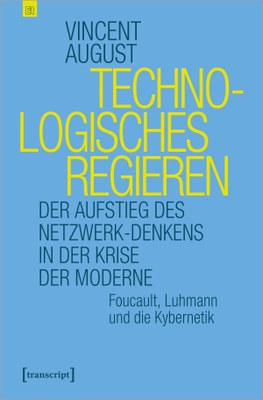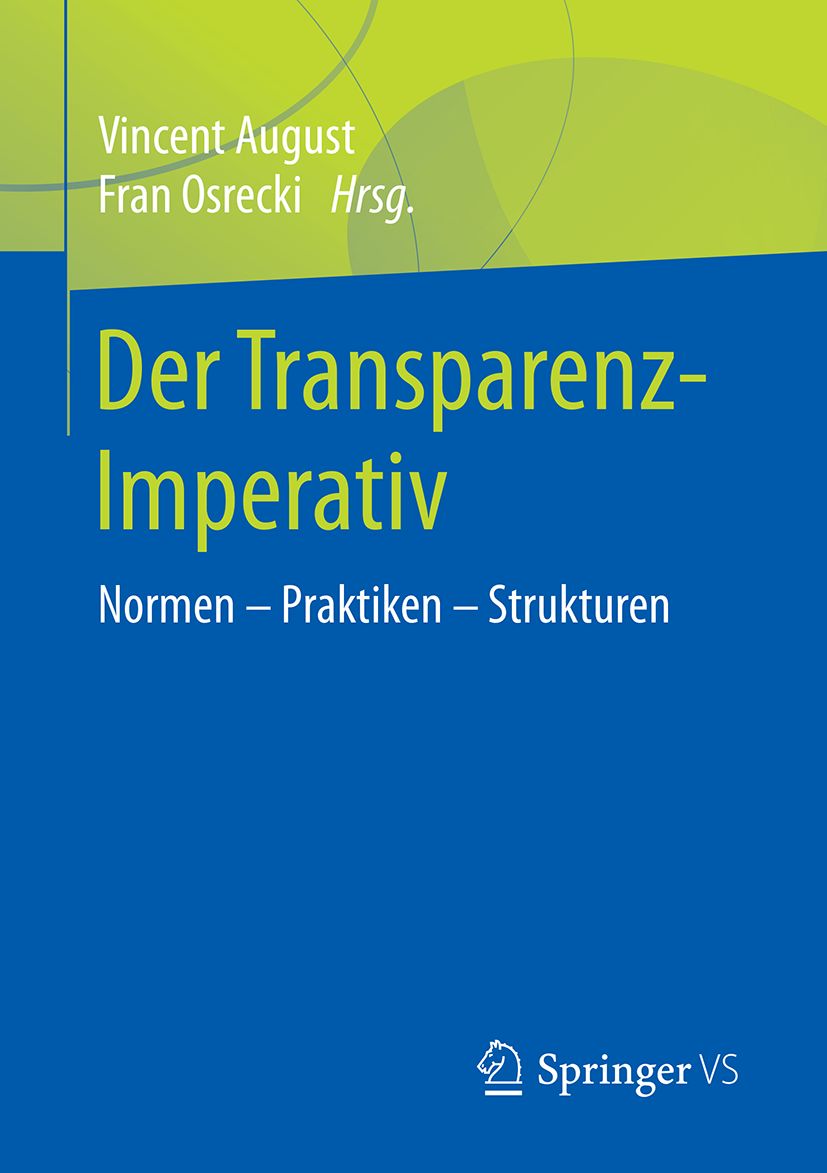Prof. Dr. Vincent August
Professor (fixed-term) & head of the research group "Ecological Conflicts"
|
vincent.august (at) hu-berlin.de |
OfficeUniversitätsstr. 3b |
Mail addressHumboldt-Universität zu Berlin |
Office hoursPlease contact me via email. |
Personal Statement
Vincent August (né Rzepka) is professor of social theory at the Department of Social Sciences from 2023-2026 and is head of the research group "Ecological Conflicts" funded by the Gerda Henkel Foundation. Before these engagements, Vincent has been a researcher in social and political theory at HU Berlin as well as visiting researcher at UC Berkeley, the Berlin Social Science Center (WZB), and the Weizenbaum Institute for the Networked Society. He is co-publisher and editor at the Theorieblog, the leading German research blog in political theory and winner of the 2021 research blog of the year award by Pollux. Vincent holds a Phd with distinction from Humboldt-Universität zu Berlin.
Currently, Vincent is working towards a theory of democratic conflict. While fear of polarization and calls for solidarity are mounting, neither sociology nor political science has offered a concise, empirically sound theory of democratic conflicts that would allow us to contextualize and evaluate current conflicts appropriately. Vincent therefore aims for a new account of the constellations and dynamics of current conflicts about gender, migration, or climate change. In particular, he and his research group investigate how ecological conflicts shape the contours of future societies: political institutions are renegotiated (representation of future generations, rivers, mountains), new and old social groups fight for privileged representation, and their confrontations redraw the boundaries of "civilized" conflicts.
In his recent book, Vincent examined the rise of network ideas like flexibility, connectivity, and self-regulation. He reveals how consultants and intellectuals - such as Foucault, Crozier, or Luhmann - deliberately enforced cybernetic network ideas to re-shape the way we think about society and politics. As Vincent traces the cybernetic concepts from their origins via the “silent revolution” of the 1970s to present models of "agile network governance", he dissects the massive shift in our understanding of subjectivity and power that resulted from the rise of network ideas. This line of research continues in a sequence of studies that analyzes narratives of digitalization and the return of sovereignty.
In earlier works, Vincent challenged the political buzz word 'transparency', offering a genealogy as well as a general theory of transparency that unravels the history, mechanisms, and unintended consequences of transparency.
New article in the European Journal of Political Theory |
|
► Understanding democratic conflicts: The failures of agonistic theory (Open Access)Western democracies experience profound conflicts that induce concerns about polarization and social cohesion. Yet although conflicts are a core feature of democracies, the forms, functions, and dynamics of democratic conflicts have rarely been subject of political theory. This paper aims at furthering our understanding of democratic conflicts. It analyzes the theory of conflict in Mouffe's agonistic pluralism, confronts it with sociological conflict theory, and presents concrete points of departure for a more comprehensive theory of democratic conflicts. The paper, thus, contributes to two lines of research: (1) Regarding agonistic theories, the paper shows that agonistic pluralism fails to provide a convincing theory of conflict since it underestimates the mechanisms and effects of conflict dynamics (e.g. intergroup cohesion, intragroup conflict, domination, and escalation) and fails to account for the variety of conflict interactions. Proponents of agonistic pluralism should therefore invest more into clarifying their core concept. (2) For a general account of democratic conflicts, the paper proposes to pursue interdisciplinary research on the cognitive concepts shaping conflict interactions, the linked practices of conflict regulation, and the processual dynamics of conflicts.
|
|
Paper in the Journal of Political Science |
|
|
|
This article argues for an interpretive approach to digitalization research that analyzes the concepts, narratives, and belief systems in digitalization debates. I argue that there are multiple visions of the digital society, each of which follows a specific pattern of epistemology, social imaginary, and political proposals. Critical conceptual analysis aims at mapping and evaluating these different pathways into a digital society. Thus, it provides a systematic overview of competing governance rationalities in the digital society, enabling a critical evaluation of their potentials and proposals. I substantiate these claims by analyzing and historicizing the rise of network ideas, since many political actors and digitalization researchers follow network ideas, e.g. by claiming that the rise of a network society must lead to network governance. Tracing network ideas and narratives back to cybernetics, I show that they have been used multiple times in efforts to reshape the way we think about society and politics, including our concepts of subjectivity, power, and governance. (Abb.: © Springer)
|
Paper in the European Journal of Social Theory |
|
|
|
Network concepts are omnipresent in contemporary diagnoses (network society), management practices (network governance), social science methods (network analysis) and theories (Network theory). Instigating a critical analysis of network concepts, this article explores the sources and relevance of networks in Foucault’s social theory. I argue that via Foucault we can trace network concepts back to cybernetics, a research programme that initiated a shift from ‘being’ to ‘doing’ and developed a new theory of regulation based on connectivity and codes, communication and circulation. This insight contributes to two debates: Firstly, it highlights a neglected influence on Foucault’s theory that travelled from cybernetics via structuralism and Canguilhem into his concept of power. Secondly, it suggests that network society and governance are neither a product of neoliberalism nor of technological artefacts, such as the Internet. They rather resulted from a distinct tradition of cybernetically inspired theories and practices. (Abb.: © SAGE) ► Network concepts in social theory: Foucault and cybernetics (open access)
|
International Volume on Transparency |
|
|
|
The multi-language volume edited by Vincent and his colleague compiles the social science research on transparency. For an overview, read the English introduction by Vincent and Fran Osrecki that sets out to integrate the research results and sketch new frontiers of social science research. The volume shows that transparency is a modernist concept of governance that translates distrust into practices of inspection. As they standardize and formalize processes, those processes become intelligible for lay persons external to the inner workings of a system. However, transpanrency often fails to achieve the self-proclaimed goals: transparency produces intransparency. At many research institutes and universities, the volume is accessible for free via SpringerLink. (Abb.: © Springer VS) ► Transparency Imperatives: Results and Frontiers of Social Science Research |
Research interests
Vincent’s research areas are:
social and political theory
history of thought and sociology of knowledge
conflict sociology and political sociology
His main research topics are:
Conflict and cohesion:
conflict theories, ecological conflicts, solidarity and social cohesion in late modern societies
Society, technology, and ecology:
history, epistemology, and power of technological and ecological ideas, esp. cybernetics, systems approaches and network theory
Norms, practices, and critique of governance:
networks, (neo)liberalism, republicanism
Transparency and the public sphere:
norms, practices, consequences of transparency, concepts of publicity, rhetoric
Teaching
The Network Society: An Epistemic Order and its History of Thought
Ecological Theory: Analytical and Normative Approaches
Hannah Arendt's Political Thought
The Public Sphere: Theory, History, Challenges
Politics and Postmodernity: 'Governance' as a Political Theory
Michel Foucault’s History of Governmentality
Political Rhetoric: Analysis and Technique of Power
Liberalism – History and Topicality
Introduction to Political Theory and the History of Political Thought
Introduction to Academic Research
Performativity and Politics (team-taught with Grit Straßenberger)





